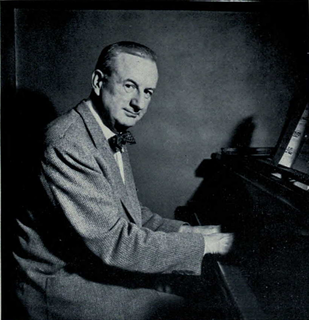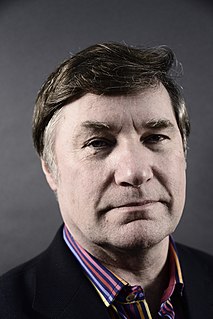A Quote by Andrew Wiles
I tried to fit it in with some previous broad conceptual understanding of some part of mathematics that would clarify the particular problem I was thinking about.
Quote Topics
Related Quotes
The question you raise, 'How can such a formulation lead to computations?' doesn't bother me in the least! Throughout my whole life as a mathematician, the possibility of making explicit, elegant computations has always come out by itself, as a byproduct of a thorough conceptual understanding of what was going on. Thus I never bothered about whether what would come out would be suitable for this or that, but just tried to understand - and it always turned out that understanding was all that mattered.
A good deal of my research in physics has consisted in not setting out to solve some particular problem, but simply examining mathematical equations of a kind that physicists use and trying to fit them together in an interesting way, regardless of any application that the work may have. It is simply a search for pretty mathematics. It may turn out later to have an application. Then one has good luck. At age 78.
One of the nice things about our marriage, at least to my way of thinking, is that my wife and I no longer have to argue every thing through. We each know what the other will say, and so the saying becomes an unnecessary formality. No doubt some marriage counselor would explain to us that our problem is a failure to communicate, but to my way of thinking we've worked long and hard to achieve this silence, Lily's and mine, so fraught with mutual understanding.
There is a big misunderstanding about the idea of naturalness. Most people who come to us believing in some freedom or naturalness, but their understanding is what we call [heretical naturalness] ... a kind of "let-alone policy" or sloppiness... For a plant or stone to be natural is no problem. But for us there is some problem, indeed a big problem. To be natural is something we must work on.
All our surest statements about the nature of the world are mathematical statements, yet we do not know what mathematics "is"... and so we find that we have adapted a religion strikingly similar to many traditional faiths. Change "mathematics" to "God" and little else might seem to change. The problem of human contact with some spiritual realm, of timelessness, of our inability to capture all with language and symbol-all have their counterparts in the quest for the nature of Platonic mathematics.
When we are not engaged in thinking about some definite problem, we usually spend about 95 percent of our time thinking about ourselves. Now, if we stop thinking about ourselves for a while and begin to think of the other person's good points, we won't have to resort to flattery so cheap and false that it can be spotted almost before it is out of the mouth.
Some people feel like you need to have a very specialized understanding of music to have the authority to talk about it. They are such good directors that it's perfectly possible to have conceptual and directorial and storytelling conversations about music without needing to know all the technical pieces.
Some people ask: "Why the word feminist? Why not just say you are a believer in human rights, or something like that?" Because that would be dishonest. Feminism is, of course, part of human rights in general-but to choose to use the vague expression human rights is to deny the specific and particular problem of gender. It would be a way of pretending that it was not women who have, for centuries, been excluded. It would be a way of denying that the problem of gender targets women.
The point of mathematics is that in it we have always got rid of the particular instance, and even of any particular sorts of entities. So that for example, no mathematical truths apply merely to fish, or merely to stones, or merely to colours. So long as you are dealing with pure mathematics, you are in the realm of complete and absolute abstraction. . . . Mathematics is thought moving in the sphere of complete abstraction from any particular instance of what it is talking about.






































